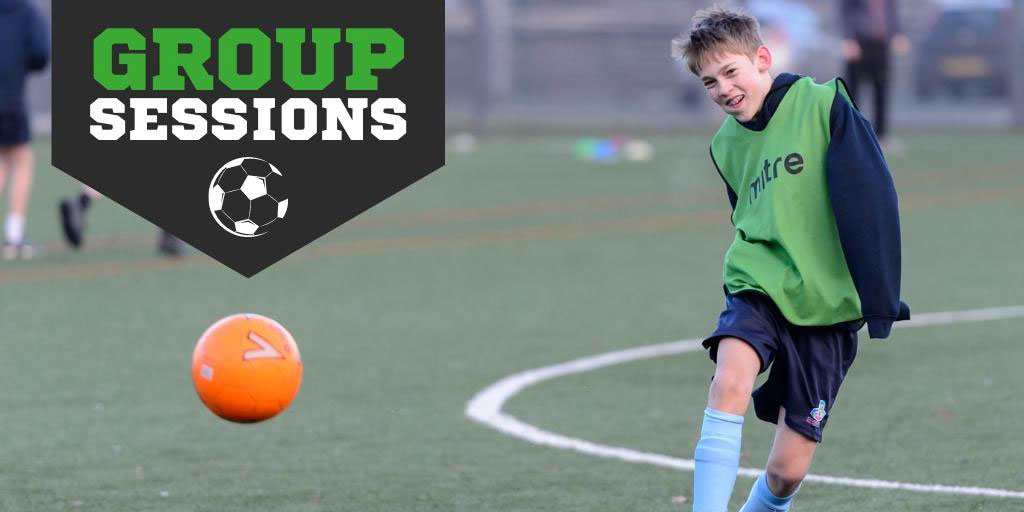Group sessions make learning football a fun and engaging experience. Studies show that children learn better, develop better social skills, and get more opportunities to interact with equipment.
But how do our coaches at Ballers use them? Read on to find out…
How do we improve their fitness and skill with group sessions?
Group sessions help us create a more realistic match environment for children. Football is a game of skill and one of the most important skills, is playing under pressure. We coach children to learn from those situations and become comfortable with them as a pathway to improving their reaction to stimuli.
By keeping practice space small we can imitate those tight scenarios, and help them build an awareness of gaps, passes, and dribbles they can use to get past the opposition. What we want to improve is the accuracy of their passes and their understanding of verbal and non-verbal communication in high-pressure situations.
All children get a higher intensity of exercise which is a vital component of the mandated 60 minutes of daily exercise for children. While at school, larger class sizes might mean they get far less interaction with the ball or other equipment. Our group sessions have been developed to remedy that.
How do we coach passing techniques with group sessions?
In a larger group size, the average child might get 3 or 4 goes at an activity. Our group sessions are developed with the express purpose of getting them lots more practice time. Muscle memory comes from the repetition of passing and shooting skills. We coach them through the positions they need for greater accuracy and get the best of it through our peer group sessions.
We work on two key passing skills in our group sessions. Keeping their heads up and using the inside of their foot to receive the ball. Group sessions give us the opportunity to get them comfortable with the ball. They develop their spatial awareness and build their hand-eye coordination. Instead of opting for the normal fallback, which is head down and eyes on the ball. With us, they practice drills that help them construct an awareness of their contact with the ball without keeping their head down constantly.
Passing this way in groups not only allows them more time on the ball, but means they can work on their verbal and non-verbal communication. When they are working in groups, over time they’ll realise how difficult it is to pass with their heads down. Passing into a space for interception or passing to a teammate require a level of confidence in their physical skills that are easier to learn in group sessions.
Consistent immersive scenarios are essential to building their confidence and skill.
How do we coach shooting techniques with group sessions?
Accuracy. Accuracy. Accuracy. These are the three A’s of our group sessions for building shooting skills. Group sessions are great for applying pressure. Accuracy outside of pressured situations doesn’t help them to convert their skills during full game sessions. We operate drills that improve their accuracy and help them apply their knowledge of shapes and angles.
The first step is to build the confidence to go for the shot. Hesitation can often stem from feeling less confident physically. Our group sessions both encourage children who are more confident with their ball skills to hone the right techniques and break bad habits. Simultaneously, less confident children are provided with detailed feedback to boost their confidence, and improve their skills.
We then look to coach targeting and the correct positioning. We coach drills that encourage children to give themselves internal constructive feedback. They then understand whether they have pointed their toe and locked their ankle when they should or struck the centre bottom of the ball to get the accuracy needed. Best of all, they get used to self-correcting themselves by comparing their shots on and off-target with the correct positioning and placement.



